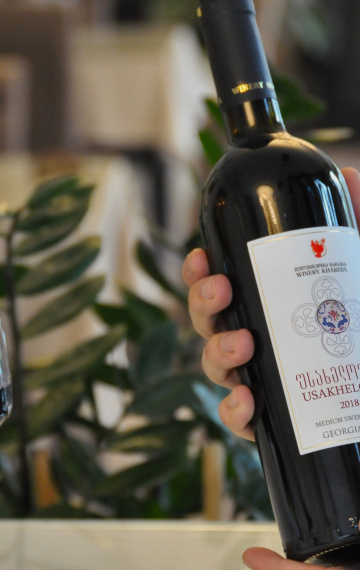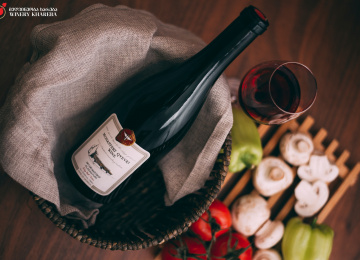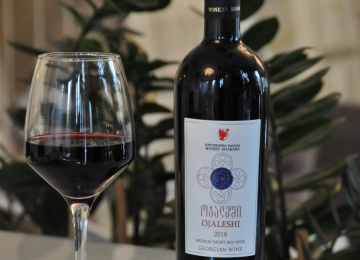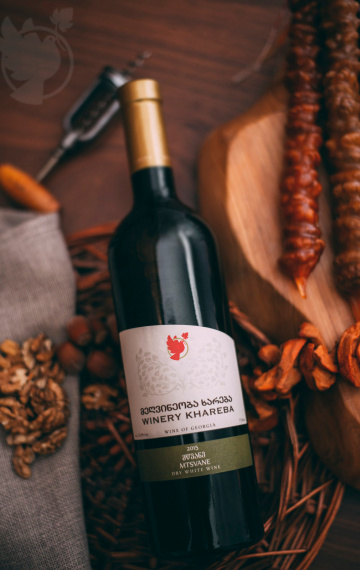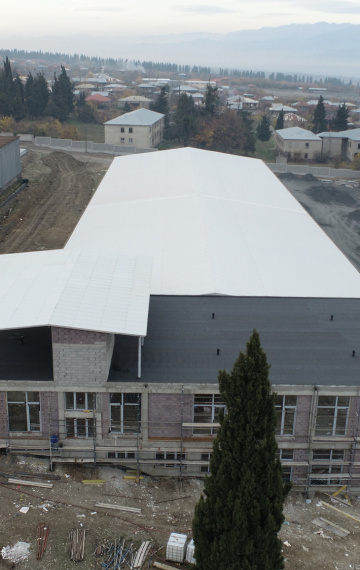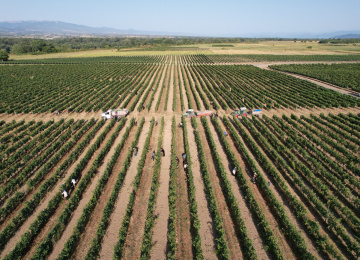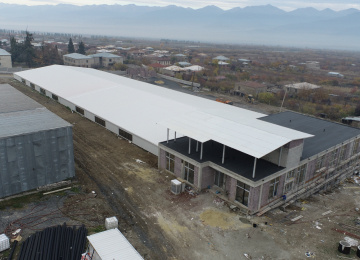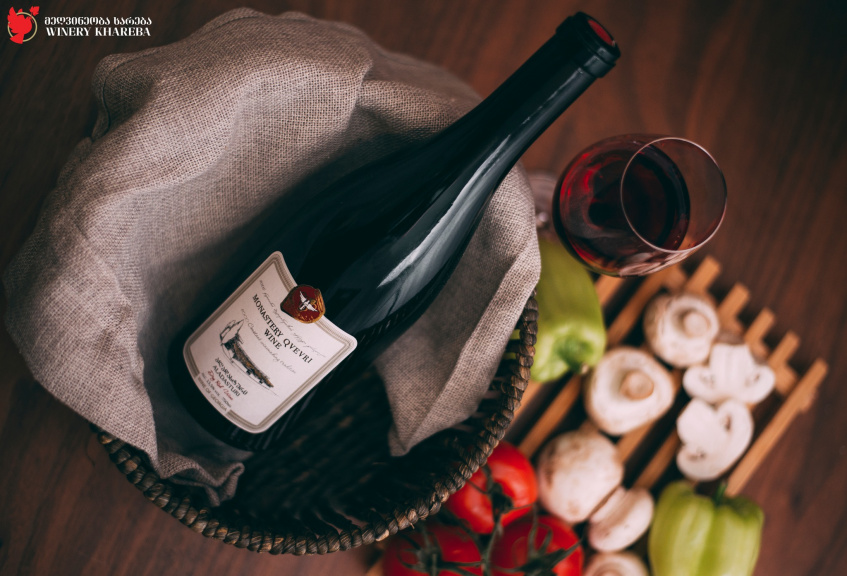
The village of Vachnadziani in the Kakheti region of eastern Georgia is famous for having one of the oldest wineries in the country. Locals started building it in the early 1900s. It had to close as the Second World War hit the Soviet Union, and the winery reopened only in 1953, processing that year a bumper crop of grapes harvested by local farmers.
Now, almost 70 years later, the winery is about to have another fresh start after being retooled with high-quality Italian equipment and under the guidance of a leading Georgian winemaking company – Winery Khareba.
The company strives to create high-quality products that preserve unique grape varieties and traditional methods of winemaking. Winery Khareba owns over 1,500 hectares of vineyards in the regions of the country where the best grape varieties are cultivated.
"Winery Khareba promotes the cultivation and development of such rare Georgian varieties in western Georgia as Krakhuna, Tsolikouri, Tsitska, Aladasturi, Otskhanuri Sapere,” reads the company’s website. In total, the company produces more than 50 types of products from up to 30 varieties of grapes, including wine, sparkling wine, brandy, Chacha (Georgian-style vodka), and grape seed oil.
Winery Khareba has wineries in the western and eastern parts of the country equipped with the latest European technologies. The company makes its high-quality wines using a range of aging methods, including the Qvevri method (maturation in traditional Georgian clay pots) and maturing the wine in oak barrels.
“Eight thousand years of winemaking experience and the innovative achievements of the 21st century are combined in our wineries,” says the company.
Also, in Kvareli, on the edge of the Alazani Valley, there is a unique wine cellar - a tunnel – that belongs to Winery Khareba. The tunnel, carved in the Caucasus cliffs, was specially opened in 1962 for the World Congress of Vine and Wine, and currently, acts as the wine storage for the company. The total length of this construction is 7.7 kilometers.
Let's return to the Vachnadziani wine cellar. Despite its great potential, the company faced significant challenges after its acquisition. The winery was only equipped for the primary processing of grapes.
This meant that when the sweet or wine sediment obtained from the grapes finished alcoholic fermentation, the company had to take the wine materials to the Terjola cellar, where the processing, stabilization, and bottling would be completed
“The primary fermentation process was finished by September, and then this enormous amount of liquid had to travel 500 kilometers from Gurjaani to Terjola,” says Giorgi Imnadze, CFO, noting that wine at this stage in its production is a biologically active liquid and that transportation, as well as rapid changes in temperature, can have a significant impact on its quality.
"This was a very big problem because transporting this volume of liquid over such a long distance is very expensive and risky."
“It was a huge problem, because transporting such a large amount of liquid for such long distances is very expensive, and there is a risk that the product quality is affected.”
Despite the challenges, Winery Khareba wanted to remake the cellar into an enterprise with a complete cycle of winemaking that meets ISO standards. That meant adding constructions and equipment, including an administration building and storage unit, a bottling department, a special area for wine stabilization, wastewater and fire safety systems, and a treatment plant.
For that, the company leadership needed to come up with a plan.
Luckily for Winery Khareba, EU4Business and the European Bank for Reconstruction and Development (EBRD) were there to help. The company was awarded a credit of over EUR 1 million through the EU4Business-EBRD Credit line – a joint initiative of the European Union and the EBRD.
The initiative aims to help Georgian small- and medium-sized enterprises finance investments and seize the opportunities under the DCFTA – Georgia’s Deep and Comprehensive Free Trade Agreement with the EU, which was signed in 2014 and came into effect in 2016. In all cases, support is given so that companies can invest in new equipment and technologies that facilitate compliance with EU Directives.
With the credit, the company bought necessary equipment, including wine cisterns and vinegar production machines, and completely retooled the factory, which will open again in the nearest future.
A new enterprise means more job opportunities for locals – the company currently has 45 workers at the factory, and it will add 20 more as the project finalizes. Before, they only employed people in grape processing, but now they will also have winemaker’s assistants, accountants, storage workers, and security guards.
“The reconstruction work is coming to an end, and we will soon have a fully equipped modern factory in Kakheti, which can process grapes at all stages, from primary treatment to bottling,” says Imnadze. He says the factory will process 7,000-9,000 tonnes of grapes, from which it will produce a couple of million bottles of wine.

